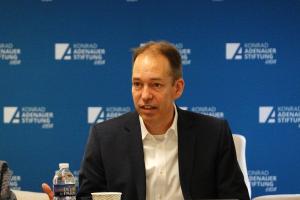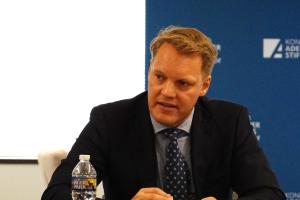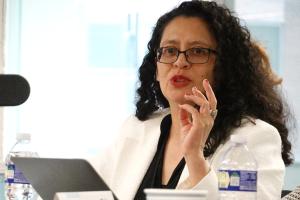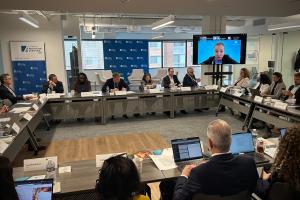The workshop entitled "Evolving the International Financial Institutions for Reinvigorated Global Development and Multilateralism", was held on 15th April 2025. The workshop brought together representatives from the IFIs, Member States, Multilateral Developments Banks, the UN, private sector, think tanks and experts to drive solutions to upgrade the global financial system.
The workshop provided a platform for multistakeholder dialogue in the context of the preparatory phases of the 4th International Conference on Financing for Development (FfD4).
Key takeaways from the discussion are summarized below:
- The Bretton Woods Institutions have made commendable progress in line with their mission of ensuring stability in times of crisis and catapulting economic development. However, new challenges of climate change, loss of biodiversity, and a shifting geopolitical context add to the growing calls to further strengthen the IFIs to better deliver on their mandates.
- IFIs were encouraged to further strengthen action to alleviable debt burdens of developing countries, leverage smart investments and capital markets, cooperate with the right private sector partners, and create new risk instruments enabling affordable finance for developing economies. Responding to new threats, the World Bank has recently updated its mission to end extreme poverty and boost shared prosperity on a livable planet, and it continues to act on calls for more financing including mobilizing 150 billion USD over the next 10 years and recalibrating its risk appetite.
- Calls were made for governments to ensure strong accountability over domestic financing and business environments. In parallel, a conducive and supportive international environment is critical to enabling domestic development. The United Nations plays a vital role to ensure an inclusive and representative discussion takes place during FfD4, with Member States in the driver seat of the process.
- Calls were made for an increased role of emerging economies in global development cooperation and financing in light of the US withdrawal from the multilateral system and increased geopolitical competition with China.
- An ecosystem approach to investment, emphasizing the role of collaboration and partnership, was highlighted during discussion. As IFIs are not responsible for all aspects of economic development, domestic actors must work hand-in-hand with international financial actors and development partners to foster inclusive and favourable business environments at home to attract private investment. The FfD4 will feature an international business forum, which provides an opportunity to push investment and solutions.
- Voices in the G-77 + China increasingly call to raise ambitions of IFIs, provide better access to financing, and strengthen representation in IFI governance bodies. Discussions raised the growing divergence between proposals of advanced and developing economies, which continue be a sticking point in the run-up to FfD4, taking place in Sevilla this summer. Participants emphasized that FfD4 must remain pragmatic and focused, considering the complex global context.







